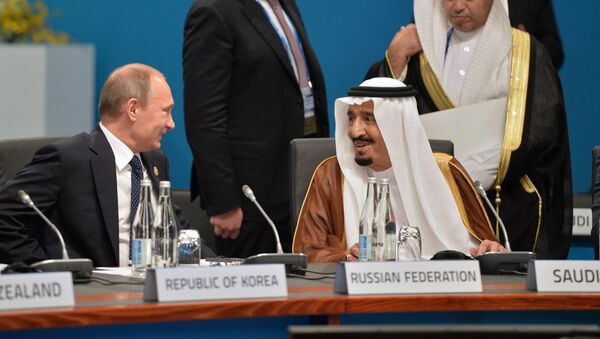The discussion was initially suggested by Saudi Arabia. Shortly after the announced plans, oil prices increased by more than five percent, with Brent currently trading above 35 dollars per barrel.
"The fundamental data continues to show that the global oil market is very much oversupplied," Dominick Chirichella, senior partner at the Energy Management Institute in New York, told Radio Sputnik "But the perception is that the market is going to improve."
In mid-January market prices for crude benchmarks dropped to a 12-year low, sliding below the historic level of $30 a barrel. The price declines resulted in slowdowns in oil-related economies like Russia and Saudi Arabia and raised concerns among oil-producing countries.
Earlier, a senior OPEC delegate said that "OPEC countries of the Gulf region and Saudi Arabia are ready to any cooperation to stabilize the international oil market."
Russian Energy Minister Alexander Novak for his turn stated that "it is still too early to make conclusions about" the cuts, adding that the issue is currently a subject to discussion.
"We could be coming to a transition point right now. And the market now is going to be very-very focused on further comments, coming from both Russia and, in particular, Saudi Arabia," Chirichella stated.
According to the expert, simply the prospect that both countries are going to meet might mean that they have a sort of an agreement. And this assumption alone could be enough to increase oil prices by 5-10 dollars per barrel or more in anticipation that Moscow and Riyadh are going to sign some sort of a deal.



